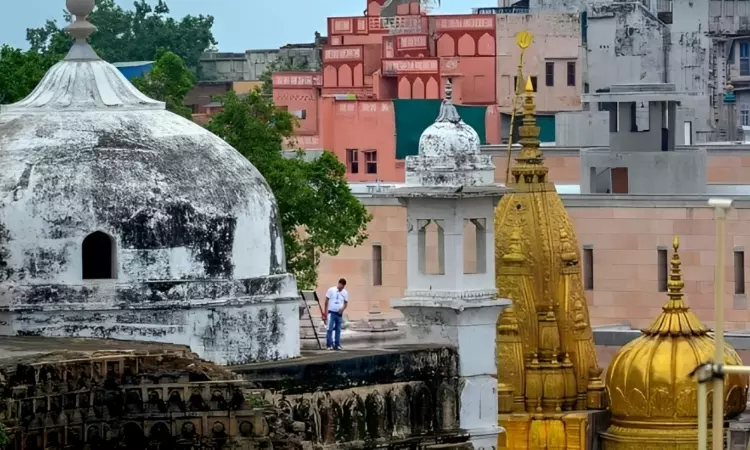- Home
- /
- Top Stories
- /
- BREAKING | 'Can Say There Existed A...
BREAKING | 'Can Say There Existed A Large Hindu Temple Before Gyanvapi Mosque's Construction', Concludes ASI's Survey Report
Sparsh Upadhyay
25 Jan 2024 10:03 PM IST
In a significant development, the Archaeological Survey of India's (ASI) survey report concerning the Gyanvapi Mosque in Varanasi has claimed that there existed a large Hindu Temple before the construction of the existing structure (Gyanvapi Mosque).The report also asserts that the parts of the pre-existing temple including pillars were used in the construction of existing structure...
Tags
Archaeological Survey Of IndiaGyanvapi MosqueArchaeological Survey of India (ASI)Gyanvapi Mosque Dispute#Gyanvapi MosqueASI Survey Of Gyanvapi MosqueShringar Gauri Worshipping suit 2022Maa Shringar GauriVaranasi Court#GYANVAPI MOSQUE SURVEYASI Survey Of Gyanvapi PremisesGyanvapi ASI SurveyGyanvapi CaseGyanvapi SurveyGyanvapi MasjidKashi Vishwanath-Gyanvapi RowGyanvapi DisputeGyanvapi Mosque IssueDistrict Judge AK VishveshaVaranasi District JudgeGyanvapi Masjid CaseGyanvapi Mosque CaseGyanvapi-Shiva Linga CaseGyanvapi mosque surveyasi survey
Next Story



